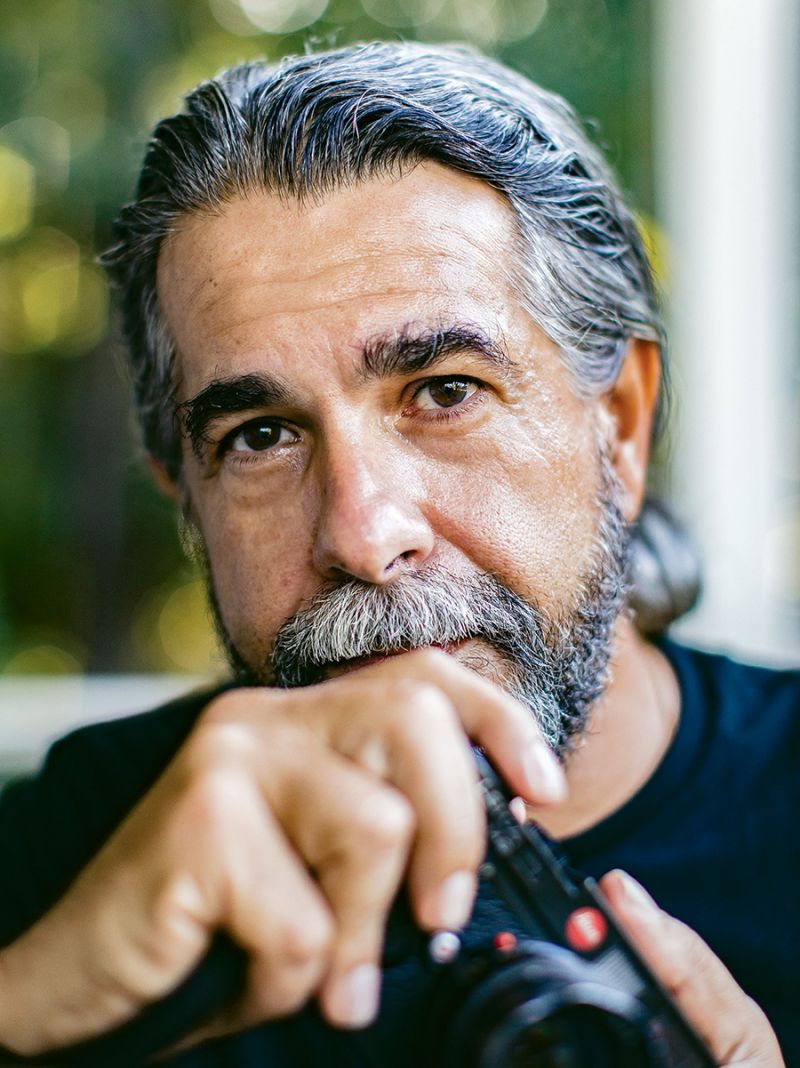
Photographer Vincent J. Musi has been a frequent contributor to National Geographic for the last 23 years, and with 11 of the publication’s covers (both national and international) to his name, you know he’s seen some pretty extraordinary stuff. The Pittsburgh native got his start as a sports photographer at the Pittsburgh Press and has since garnered worldwide attention for capturing unique landscapes—from a circa-9600 B.C. temple in Turkey to South Carolina’s own ACE Basin—as well as portraits of some of the world’s most exotic animals. Yet between hosting NatGeo’s in-house photography lecture series; emceeing LOOK3, an annual photography fest in Charlottesville, Virginia; and jet-setting around the globe (most recently to Greece, snapping 5,000-year-old worship sites for NatGeo’s July issue), Musi most relishes the time he spends at home by the beach with his wife, Callie Shell, and their 15-year-old son, Hunter.
Growing pains: Back when I was just starting out and took on projects like “Route 66” [for National Geographic, September 1997], it was just me, a small backpack, and two cameras. Now it’s more of a production, with assistants and lights and monitors—it’s a huge ordeal for us to walk across the street. It’s cool, but I also miss just getting in the car and doing my own thing.
Local pride: Of all of the places I’ve lived, the Lowcountry has the most overriding sense of responsibility for the environment. I realized that when I was shooting the ACE Basin for National Geographic from 2008 to 2014. The notion that it exists on this fragile stretch of the East Coast where every little bit is getting threatened by development—it’s pretty amazing.
Artistic phases: Sometimes I’ll get hooked on a passion. It’s been animals for a good bit, and it may continue to be. I always get afraid of being typecast. Still, I would love my next project to focus on dogs and pets in Charleston.
Roughing it: I’ve been to a whole bunch of places, but I’m not the guy they send to live in a blind in the wild. I will, however, stay in a very nice hotel for a very long time. The worst thing that tends to happen on my shoots is that we run out of bottled water, though I’ve had some bad plane experiences and have been on two helicopters that have auto-rotated due to engine problems. So my front porch with a cold beer in hand always seems like a much better option.
Family life: My wife is a Lowcountry native who’s also a photographer. She’s covered politics for a long time. Years ago she came home and told me, “I met this guy, and if we lived in Washington, D.C., we’d be friends with him.” Turns out it was Barack Obama. She spent three years documenting his rise to the presidency.
The process: You spend 99 percent of your time as a photographer not making photographs, and one percent of it pushing the button. But the other 99 is what gets you there. It’s about the alignment of the stars, the subject, and me to create something that would be hard to come back and do the next day.
Getting social: I love interacting with the community. I have more people following me on Instagram than I ever had reading any newspaper I worked for. I do think it’s significantly harder to make a living as a photographer now that so many folks are doing it for free. You know, I wish all these people had been interested in the medical profession.